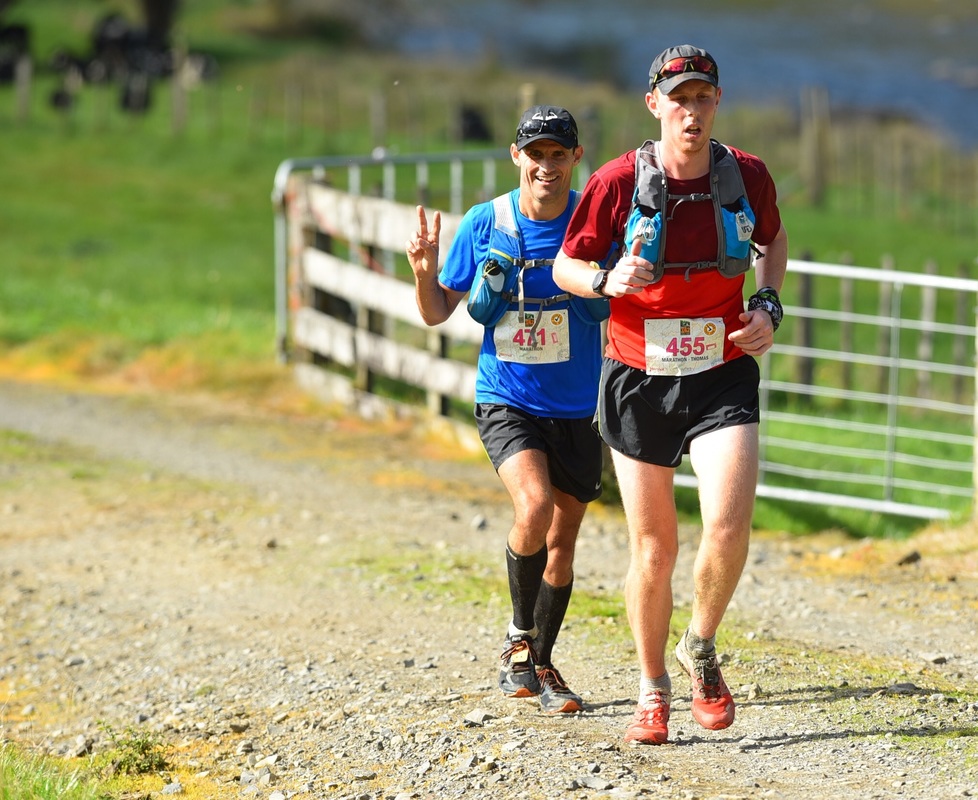This weekend a James Kuegler Coaching athlete will attempt to run the Leadville Trail 100 (160km) in 25 hours, passing twice over a mountain outside of Leadville, Colorado. How do you train somebody to do that, and how does it fit with the ethos of the lifelong runner?
Thomas Watson is an office worker from Auckland. He switched to running two years ago after a couple of years of competitive CrossFit.
"Endurance sports have always had a pull," he says. "I am probably never going to be the guy that wins the 1,500 metres or the 5k. About three or four months after I started running I entered a marathon. I am drawn towards things that other people find unfathomable. The mental game is something that I like. I like the challenge."
After his marathon experience Thomas took on the 80km Great Naseby Water Race.
"The first half was alright, the second half was pretty miserable," he remembers. "Then I heard about the Tarawera (Ultra-Marathon). That seemed like the pinnacle event in New Zealand if you are going to run an ultra-run, so I entered the 100k."
It was while boasting about these exploits that Thomas first encountered James Kuegler.
"James messaged me on Instagram, basically implying that I was a bit naïve, and that if I continued in the same vein, I would likely blow up. That’s when I said maybe we should have a chat."
James says: "My question to him was: is there a plan? Because this all seems relatively ad hoc. And from the outside looking in, not knowing a whole lot, it looks like you are going to kill yourself if you are not careful."
James reputation for promoting lifelong running means he tends to encounter enthusiasts like Thomas a lot. If he is to train them, the challenge is to channel their enthusiasm into something more disciplined.
"I have recently become quite conscious of the number of people who take on increasingly demanding events because that's what everybody else is doing. Very often, those people survive for a couple of years, then it all tends to come down in a crumbling heap. Often at that point someone will think 'maybe I need some guidance'. I like to think that with somebody like Thomas I am able to help them the rise, rather than picking them back up from the bottom."
Thomas says: "There’s 10,000 people online who say they are a coach. Anyone can write a plan, I think. It’s whether they have the science behind it to back it up. You do a search of the person and you find their name coming up in race results and placings. You think, well this guy actually talks the talk and walks the walk, that’s someone I would rather be involved with. I was thinking if I am going to put 10-15 hours a week into something I want that time to be good time."
They started the training in January.
James says: "Thomas was a couple of weeks out from the Tarawera 100km Ultra-marathon, and we knew the T42 marathon was going to be in the mix before Leadville. I needed him to realise that it wasn't possible for him to be at his absolute physical peak for all three events. You have to compromise at least one of them in order to achieve the other two. We structured the plan around that, with an educational component on how we would structure things into the future."
Thomas confesses that without James' guidance his plan would have probably been some variation of 'run as far as you can for as often as you can'. James explains the problem with that. It takes a long time to recover from each of those very long runs. The athlete eventually misses out on sessions and can't build the consistency needed.
James builds his plans around his basic principles. Train slow and efficiently. Train fast to a point. Train specific to the event. Cross train, train long and train fatigued.
Thomas has been putting in 130kms of running a week. But he has also been tramping for hours in the Hunuas, Pirongia, Ruapehu, even Ben Lomond track outside Queenstown knee deep in snow.
"I have been doing a lot of running followed by a hike, followed by running because that’s how the race will play out. You run 65kms, you hike over a mountain twice, which will hopefully take about six hours, and then you run 65kms back."
Preparing for the mental toll of something like this is also part of the training. But one thing it is hard to prepare for is altitude. The entire Leadville race occurs between 2,700m and 3,700m.
James says: "We had a chat about some of the things he is likely to experience. We talked through strategies to get through that. This race is high and gets higher. It's entirely probable he will experience headache like symptoms. It's one thing too talk about it but another to experience that after you have been running for 25 hours. How you logically think through that in those extremes is a different kettle of fish."
James is confident that Thomas has what it takes. But he stresses something like the Leadville 100 is not for everyone.
"You have to be a reasonable athlete. The physical and mental demands mean that if you are not quick enough you are never going to make it. You are always going to be battling. I predict there will absolutely be hiccups along the route. But because of the pace and ability Thomas possesses it shouldn't be an issue and he can get through it. I am talking about things like gastro intestinal distress or sleep deprivation, things like that happen in these sorts of event. The whole idea of the training is that he has enough of a buffer to be able too deal with it."
"Endurance sports have always had a pull," he says. "I am probably never going to be the guy that wins the 1,500 metres or the 5k. About three or four months after I started running I entered a marathon. I am drawn towards things that other people find unfathomable. The mental game is something that I like. I like the challenge."
After his marathon experience Thomas took on the 80km Great Naseby Water Race.
"The first half was alright, the second half was pretty miserable," he remembers. "Then I heard about the Tarawera (Ultra-Marathon). That seemed like the pinnacle event in New Zealand if you are going to run an ultra-run, so I entered the 100k."
It was while boasting about these exploits that Thomas first encountered James Kuegler.
"James messaged me on Instagram, basically implying that I was a bit naïve, and that if I continued in the same vein, I would likely blow up. That’s when I said maybe we should have a chat."
James says: "My question to him was: is there a plan? Because this all seems relatively ad hoc. And from the outside looking in, not knowing a whole lot, it looks like you are going to kill yourself if you are not careful."
James reputation for promoting lifelong running means he tends to encounter enthusiasts like Thomas a lot. If he is to train them, the challenge is to channel their enthusiasm into something more disciplined.
"I have recently become quite conscious of the number of people who take on increasingly demanding events because that's what everybody else is doing. Very often, those people survive for a couple of years, then it all tends to come down in a crumbling heap. Often at that point someone will think 'maybe I need some guidance'. I like to think that with somebody like Thomas I am able to help them the rise, rather than picking them back up from the bottom."
Thomas says: "There’s 10,000 people online who say they are a coach. Anyone can write a plan, I think. It’s whether they have the science behind it to back it up. You do a search of the person and you find their name coming up in race results and placings. You think, well this guy actually talks the talk and walks the walk, that’s someone I would rather be involved with. I was thinking if I am going to put 10-15 hours a week into something I want that time to be good time."
They started the training in January.
James says: "Thomas was a couple of weeks out from the Tarawera 100km Ultra-marathon, and we knew the T42 marathon was going to be in the mix before Leadville. I needed him to realise that it wasn't possible for him to be at his absolute physical peak for all three events. You have to compromise at least one of them in order to achieve the other two. We structured the plan around that, with an educational component on how we would structure things into the future."
Thomas confesses that without James' guidance his plan would have probably been some variation of 'run as far as you can for as often as you can'. James explains the problem with that. It takes a long time to recover from each of those very long runs. The athlete eventually misses out on sessions and can't build the consistency needed.
James builds his plans around his basic principles. Train slow and efficiently. Train fast to a point. Train specific to the event. Cross train, train long and train fatigued.
Thomas has been putting in 130kms of running a week. But he has also been tramping for hours in the Hunuas, Pirongia, Ruapehu, even Ben Lomond track outside Queenstown knee deep in snow.
"I have been doing a lot of running followed by a hike, followed by running because that’s how the race will play out. You run 65kms, you hike over a mountain twice, which will hopefully take about six hours, and then you run 65kms back."
Preparing for the mental toll of something like this is also part of the training. But one thing it is hard to prepare for is altitude. The entire Leadville race occurs between 2,700m and 3,700m.
James says: "We had a chat about some of the things he is likely to experience. We talked through strategies to get through that. This race is high and gets higher. It's entirely probable he will experience headache like symptoms. It's one thing too talk about it but another to experience that after you have been running for 25 hours. How you logically think through that in those extremes is a different kettle of fish."
James is confident that Thomas has what it takes. But he stresses something like the Leadville 100 is not for everyone.
"You have to be a reasonable athlete. The physical and mental demands mean that if you are not quick enough you are never going to make it. You are always going to be battling. I predict there will absolutely be hiccups along the route. But because of the pace and ability Thomas possesses it shouldn't be an issue and he can get through it. I am talking about things like gastro intestinal distress or sleep deprivation, things like that happen in these sorts of event. The whole idea of the training is that he has enough of a buffer to be able too deal with it."




